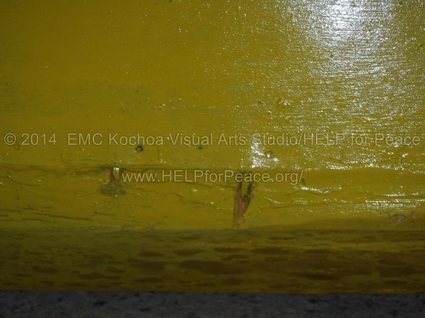 Nails protruding through the massed produced boats.
Nails protruding through the massed produced boats. When the team of HELP for Peace first set out to make boats for the survivors of supertyphoon Yolanda, we considered all possibilities for its production and distribution. Before we started, the stories about the plight of fishermen never took shape as gripping as that of slaves from centuries ago. Once we made our way to their islands and houses the project of building boats, the reality of a quasi-feudal system grips the lives of countless fishermen everyday. Building a better means of living becomes more noble as these boats may unshackle the grip of modern slavery in the high seas.
The project was meant to make positive changes in the lives of people and the families they care for. Fishermen, nets-menders, dried fish vendors, and others in isolated communities too small that you can count every head before the noonday sun sear your scalp.
We surveyed the areas around the region and saw not just widespread devastation but magnification of poverty. The poverty index are even more recognizable in how people dealt a blow to their fellow survivors and victims. Some took pains securing their boats before and during the storm only to find their motor engines gone after the rain clouds have lifted. It was of course meticulously removed and not just incidentally blown off by the worst storm in recent history.
Some politicians capitalized on the situation by making haphazard boats such as seen here where even the nails are protruding. The fishermen who received the donation took the boat with him begrudgingly. He was just told by passersby to just accept it since it was given for free.
The boats were channeled to a politician in their area who demands to be in the forefront of any donation activities and turnovers. He was expected by everyone to run for the next election.
Other politicians critical of the incumbent mayor put on their noble façade by emphasizing that they too are victims and survivors just like everyone else. He noted that his wife was criticized by many for lining up for donated food and clothes after the storm. He recalled how many of his livestock perished and the numerous trees felled in the vast land he owns. They were older than him.
We were shown around the makeshift boatmaking area near the shore of his land. It was a simple place seemingly acceptable to the workers but of course has no provisions for the weather and the nearby sea.
I was appalled to see how crude the process is and how much wood was chipped off to carve out the hull. The process was laborious and wasteful. The politician justified the use of wood because it came from his own land and were already felled by the storm.
Other boatmakers had a ready answer to where they will source the logs for the boat. They often point to Masbate. The island is indeed rich with timber. It is afterall a forest reserve for a reason. In 2010, the Forest Bureau data points to only 140 hectares considered as Open. The rest of the island forest are mangrove and even actively reforested.
With due consideration for the rate of boat production from many organizations eager to help, HELP for Peace anticipated that there will be shortage of both legally-sourced and illicit lumber. The option seems to point for fiberglass boat production.
HELP for Peace administrative officer, Ellen Kochoa, a visual artist herself who have used fiberglass before in her artworks noted the strong smell of the resin and the harm it poses to handlers of this product. It was also taken into account the long-term utilization of boats made of fiberglass.
Firstly, boats that are made of fiberglass are not traditionally used in the country. Its acceptability may be strong due to its novelty. It is indeed strong and sturdy.
Secondly, fiberglass boats require skills that will limit involvement of the traditional fisherman. They will just be passive recipients of the product.
Lastly, the fiberglass boats can't be expected to last for decades without any chance of breaks in their integrity. After a few months minimal breaks may be patched by the fisherman. Once it comes to a point that it has too many holes or breaks to repair they will leave discard it without care for the environment.
With the use of fiberglass boats, we might just give our offsprings after several centuries undegraded boats donated by the people of the 21st century. Noble but ignoble at the same time.
A few days ago, a report from the Visayan Daily Star highlight the damage wrought by boatmakers and noble organizations who apparently need to practice the principle of "Do No Harm".
The Do No Harm principle is often emphasized among medical students and health professionals. If a surgeon for example has to operate on a mass, s/he has to consider that no other organs will be damaged. If a pediatrician has to provide a medicine to an infant, s/he is expected to do so without deliberately harming the child.
In the humanitarian field, Do No Harm is especially important since most activities are done fast and sometimes in haste. Most want to deliver the goods quickly and satisfy the hungry, warm the naked bodies, quenched parched throats, and make useful hands eke out a living.
We also considered leaving as little carbon footprint with the boats we make and deliver.
We also make sure that the next generation of residents will have a beautiful sea to behold, a clean beach to land their boats on and a sustainable sea to fish from.
All our bodies are fed by the land we farm and the seas we harvest. We are what we eat. As health professionals for peace we are determined to leave a healthy world and a peaceful means to achieve it.
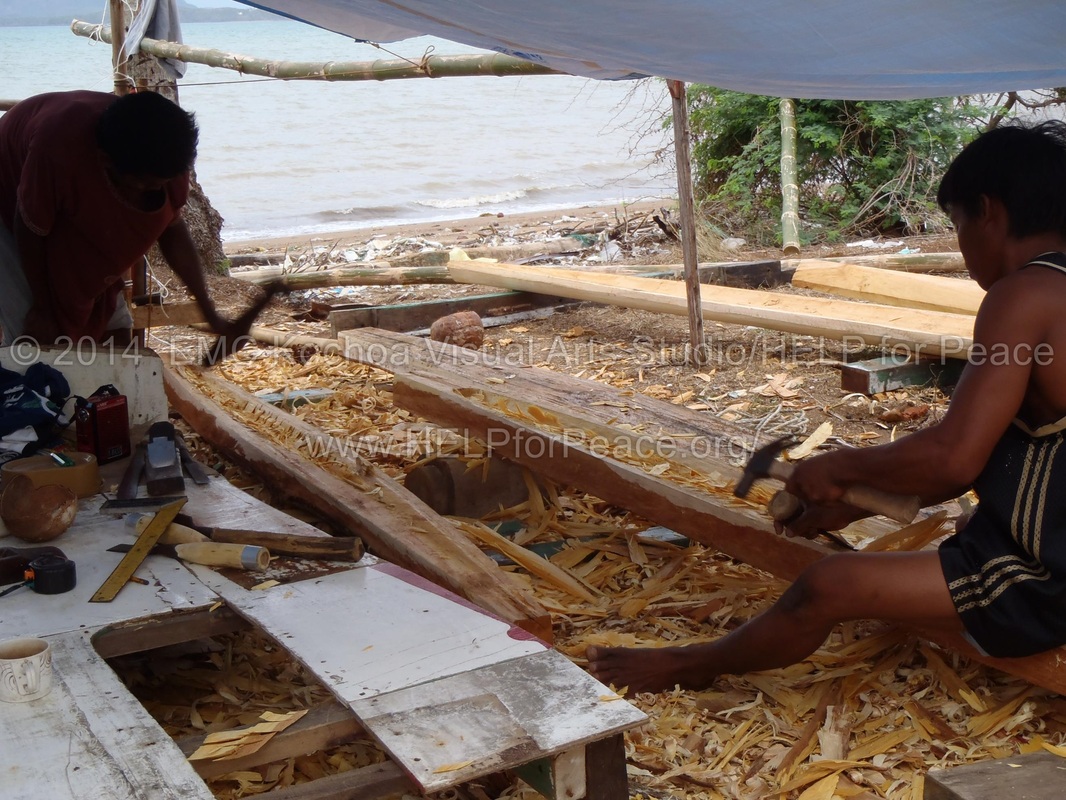
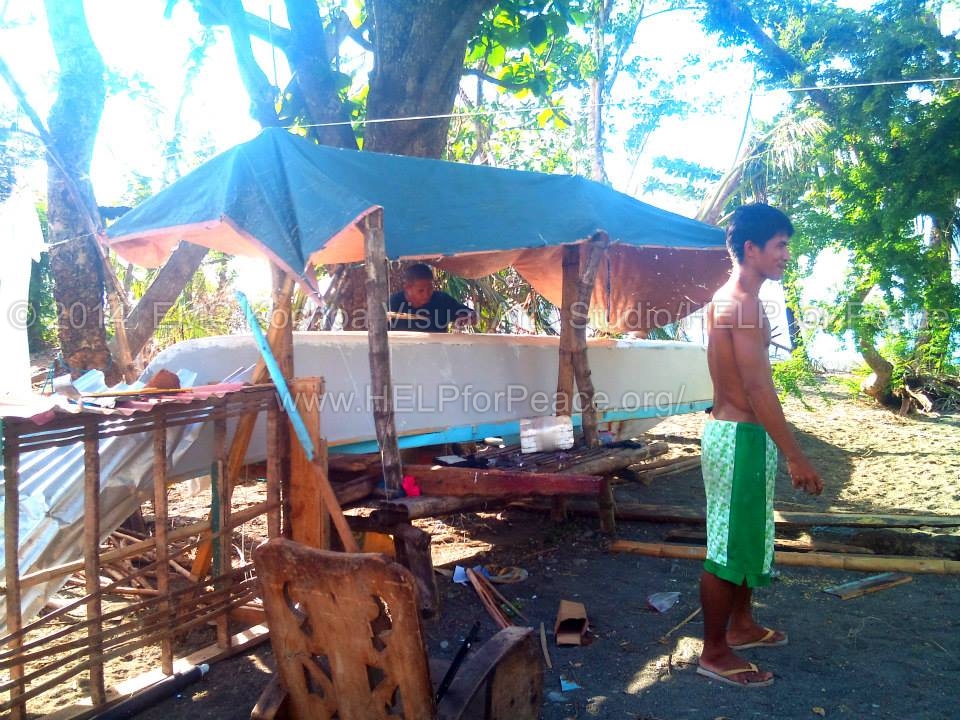
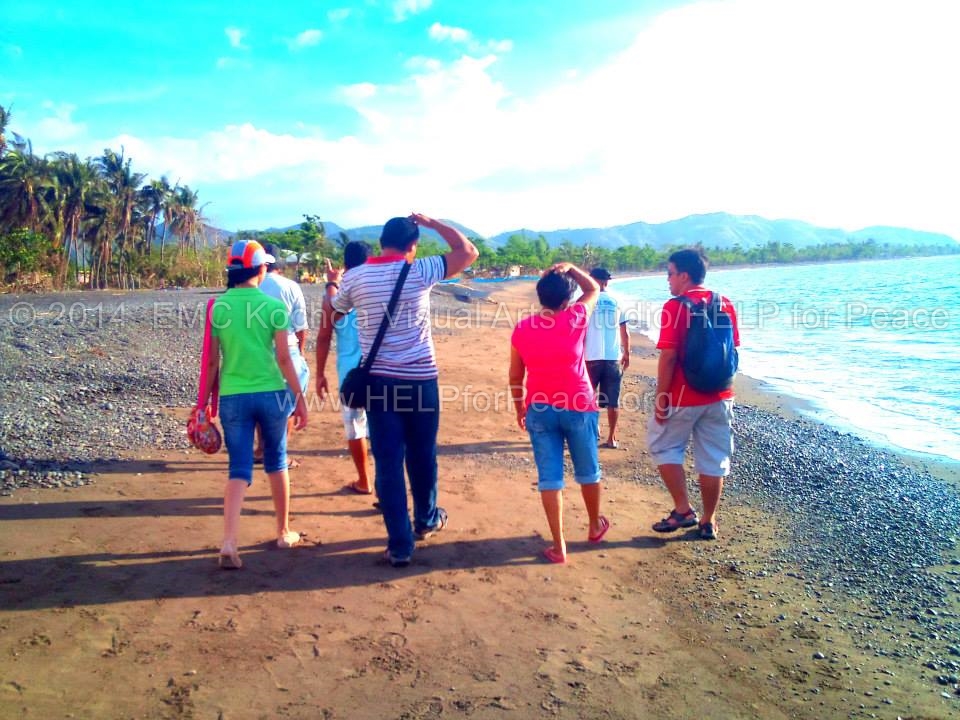
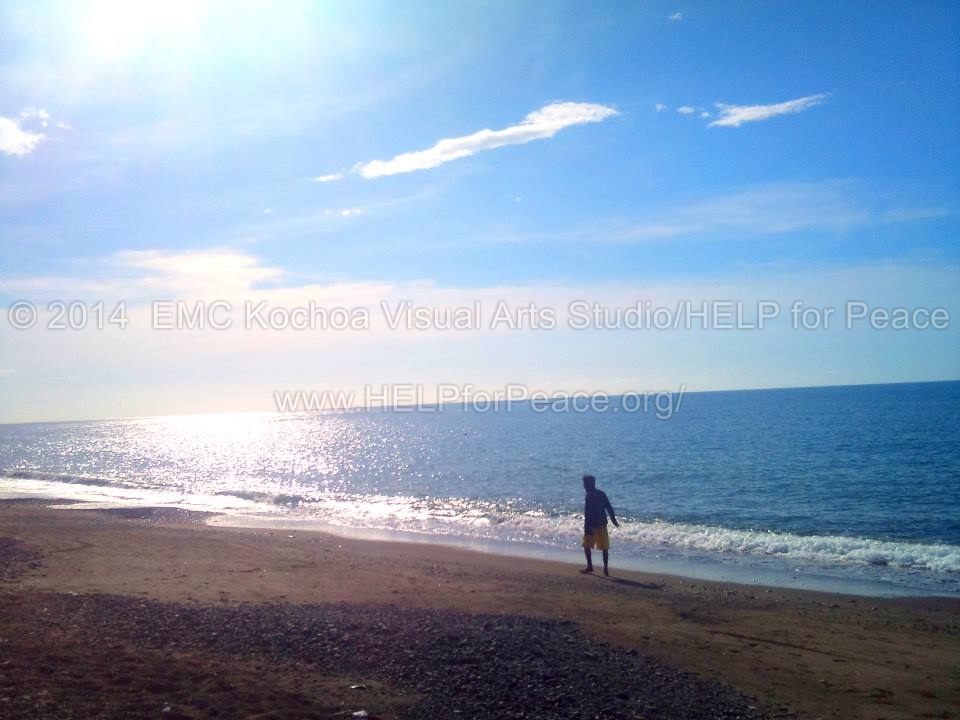
 RSS Feed
RSS Feed